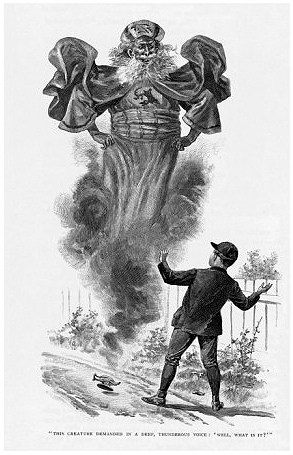
In the course of time a second genius was believed to exist, of an evil nature, who, as the instigator of all wrong-doing, was ever at war with the beneficent genius; and on the issue of the conflict between these antagonistic influences, depended the fate of the individual. The genii were depicted as winged beings, greatly resembling our modern representations of guardian angels.
Every state, town, or city, (as well as every man), possessed its special genius. The sacrifices to the genii consisted of wine, cakes, and incense, which were offered to them on birthdays.
The genius which guided a woman was called, after the queen of heaven, Juno. Among the Greeks, beings called Dæmons were regarded as exercising similar functions to those of the Roman genii. They were believed to be the spirits of the righteous race which existed in the Golden Age, who watched over mankind, carrying their prayers to the gods, and the gifts of the gods to them.
Comments
Post a Comment